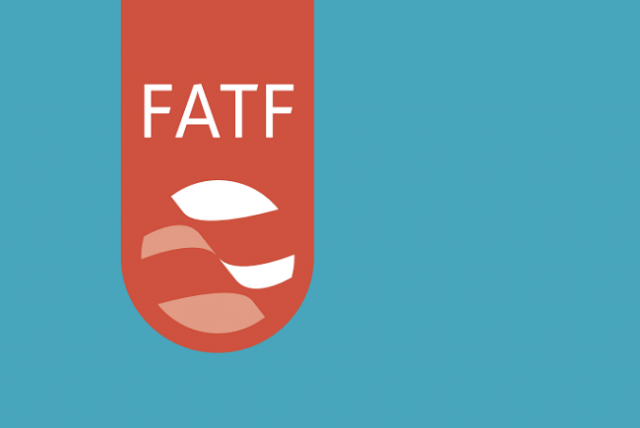FATF: Pakistan on the edge
There is no time to talk now

FATF: Pakistan on the edge
The tone of FATF’s official statement couldn’t have been any clearer. It stated that “all deadlines in the action plan have now expired and Pakistan has only largely addressed five of 27 action items”. It also warned that without significant progress across the “full range of the agreed action plan”, Pakistan could be blacklisted. The next deadline is due in February, which gives Pakistan hardly four months for what it hasn’t been able to achieve in 15 months.
Interestingly, FATF’s statement is in stark contrast with the messages that recently came out of the government quarters, creating an impression that Pakistan was on the right trajectory to get out of the grey list. This couldn’t, however, be any farther from the truth. Although the government never released the agreed action plan or the progress against it, the successive FATF statements publicly acknowledged progress on only two counts — operationalising the integrated database for Pakistan’s currency declaration regime and revision of the ML/TF risk assessment. Out of the 10 objectives of the action plan, these relate to only the first objective and that too partially. Progress against the rest of the nine objectives remains unclear.
This shows that besides performance gaps, there are also serious issues of either miscommunication by the government or its flawed understanding of the FATF action plan. Similar concerns about the lack of disclosure have also been raised earlier. The national risk assessment (NRA) report was never made public, despite the fact that such assessments are routinely disclosed by other countries. Recently released Pakistan’s Mutual Evaluation Report highlighted that while the NRA was shared with key law enforcement agencies, it was not even shared with the private sector, with the exception of banks that were given some presentations. This was despite the fact that one of FATF’s main concerns is poor understanding of the ML/TF risks within the private sector. If the government brings out this information in the public domain, not only will it create awareness in the private sector but also reduce rumor-mongering by the Indian media and would ensure public oversight and pressure to support requisite changes.
Then comes the diplomatic frontier. Within the FATF, a total of three votes are needed to avoid backlisting and Pakistan has been relying on China, Turkey, and Malaysia to dodge the blacklist so far. But a significant shift in FATF’s tone clearly indicates that the diplomatic space is shrinking. Reportedly, Pakistan has also been informed by a few allies that the diplomatic shield won’t last long without actual progress on the ground. This essentially means that if we fail to demonstrate significant progress, some of our allies may be turning their backs on us.
There is no time to talk now. Instead, we need to strengthen core institutions like the Financial Monitoring Unit, regulators and law-enforcement agencies; provide training to relevant private sector entities; and most importantly push the pedal to the metal on enforcement, seizures, case registration, investigations, prosecutions, and convictions in cases of money laundering and terrorism financing. If we can show some serious performance in the next three to four months, we might have a chance to thwart off this threat, or else we could slip from the edge.
Published in The Express Tribune, October 22nd, 2019.
Like Opinion & Editorial on Facebook, follow @ETOpEd on Twitter to receive all updates on all our daily pieces.















COMMENTS
Comments are moderated and generally will be posted if they are on-topic and not abusive.
For more information, please see our Comments FAQ